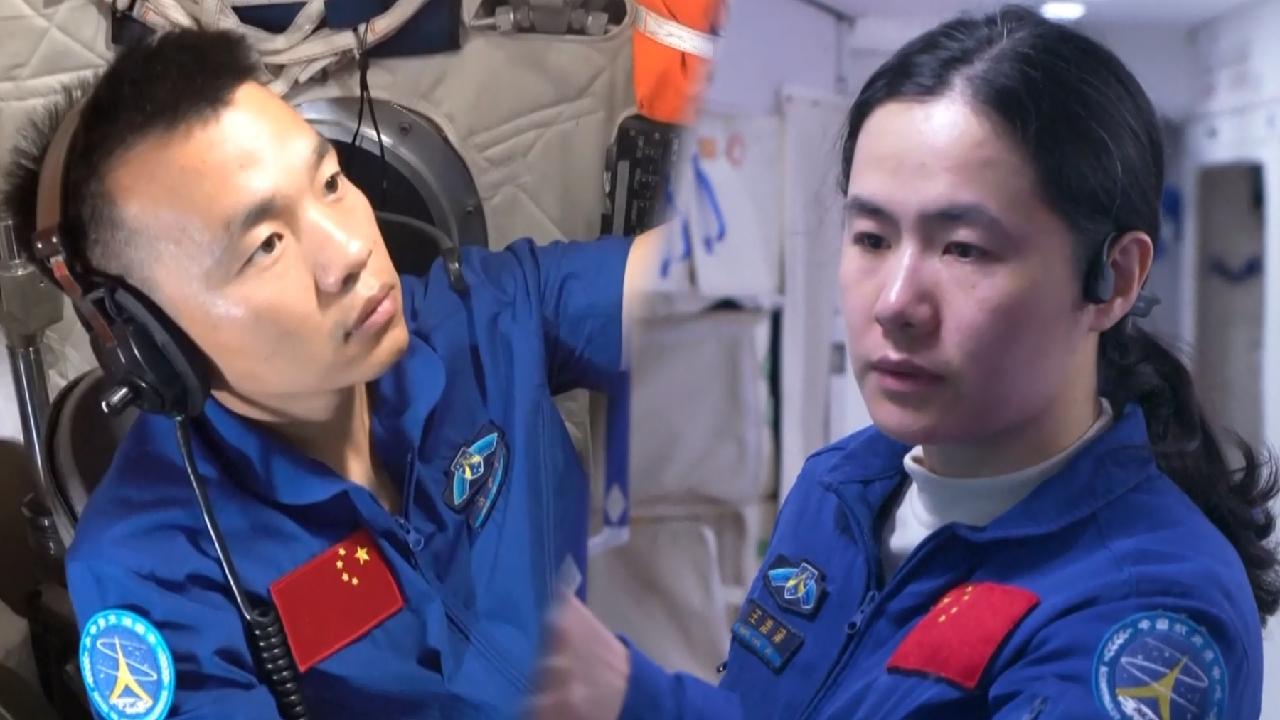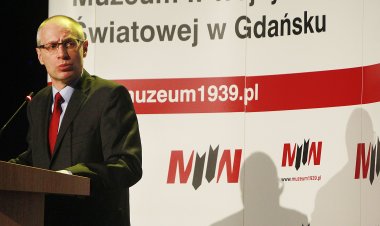China's inaugural 'post-90s' astronauts set to achieve their space dreams
The Shenzhou-19 crewed spaceship is scheduled for launch on Wednesday, transporting three astronauts—Cai Xuzhe, Song Lingdong, and Wang Haoze—to the China Space Station. Notably, Song and Wang, who were both born in 1990, belong to China's third astronaut group, marking them as the first "post-90s" astronauts from the nation to travel into space.

Notably, both Song and Wang, born in 1990, belong to China's third taikonaut group, marking them as the first Chinese astronauts from the "post-90s" generation to visit space.
**Song Lingdong: 'The best men become pilots'**
Hailing from Shandong Province in eastern China, Song was born in August 1990 and enlisted in the military in 2008, where he became a pilot.
Recounting his early experiences, Song shared, "When I first enlisted, the idea of being a pilot, especially a fighter pilot, was pretty vague. In one training session, a former fighter pilot instructor shared his flying journey and wrote on the blackboard, 'The best men become pilots.' That struck a chord with me; I wanted to be that kind of man and fly the best planes. That has driven me ever since."
By 2016, Song had amassed extensive flying experience across the country. "I've flown from north to south, and seeing our country's beauty from above fills me with pride," he remarked during an interview with China Media Group.
In 2018, he discovered astronaut recruitment during a mission and swiftly applied, eager for new challenges. "Joining the space program felt like a chance to fulfill my potential. One of the biggest challenges for me has been the centrifuge training since I've always struggled with motion sickness. But I pushed through," he explained.
Following several rigorous evaluations, Song became a member of China's third group of taikonauts in 2020 and appreciated the mentorship from seasoned astronauts. "The veteran taikonauts passed down their knowledge without reservation. It's this commitment to training and mentoring young taikonauts that keeps our space program vibrant," he noted.
As he prepares for his inaugural mission, Song dreams of stepping outside the space station to experience the vastness of the universe. "I flew at dawn once, reaching 20,000 meters, and saw the Earth's curve. Watching the sunrise at that height made me feel both small and incredibly lucky," he reflected. "Now, I'm thrilled to have the chance to see the grandeur of space from our space station."
Expressing gratitude, Song acknowledged the opportunities afforded to his generation by a strong nation. "The harder you work, the luckier you get. I feel like a lucky one in this era," he stated.
**Wang Haoze: China's first and only female space flight engineer**
Wang, born in March 1990 in Hebei Province, holds a degree in thermophysics engineering and previously served as a senior engineer at the Academy of Aerospace Propulsion Technology under the China Aerospace Science and Technology Corporation.
Transitioning from designing rocket engines to operating them was a significant challenge for Wang. While undergoing taikonaut selection in 2020, she confronted one of her major hurdles during centrifuge training, which simulates the intense six-fold G force experienced in spaceflight. "Our centrifuge instructor said that he got an alarm bell that has never rung because no astronaut had ever pressed the button. I was holding that button with my mind struggling. I felt terribly sick in those moments, but I thought I just couldn't press it; I can't be the first to do this," she recounted in an interview with CMG.
As an engineer who became a taikonaut, Wang developed what she refers to as her two "magic keys" to success: diligent practice and astute thinking. "I had to keep practicing, and after practicing nearly 1,000 times, I met the requirements for every docking simulation," she stated.
The second key involves quick thinking. "There are certain operations that require us to do more thinking in extravehicular training. For example, what kind of posture should my body in the suit be to extend the range of operation, and where my hand should be to hold more firmly and exert the right amount of force," Wang explained.
The new crew has a variety of tasks ahead, including conducting space science and application tests, performing extravehicular activities, installing protective devices against space debris, and managing the recycling of extravehicular payloads and equipment. They will also participate in science education, public welfare initiatives, and other experimental payloads.
"I think I would be more useful in communicating with the ground technicians. For instance, when we encounter some situations outside the plan and need to use our wisdom and engineering background together to solve the problem, I think there is a role for me to play," Wang noted.
For Wang, who dedicated years to studying advanced rocket propulsion systems before becoming a taikonaut, the launch on Wednesday symbolizes more than just a mission; it represents a lifetime commitment to space exploration. "All I think about is to focus on my work; I must do every job well in space," she asserted.
The crew is set to conduct 86 space science research and technological experiments, with an expected orbital duration of approximately six months before returning to the Dongfeng landing site in Inner Mongolia in late April or early May next year.
Navid Kalantari for TROIB News
Discover more Science and Technology news updates in TROIB Sci-Tech












